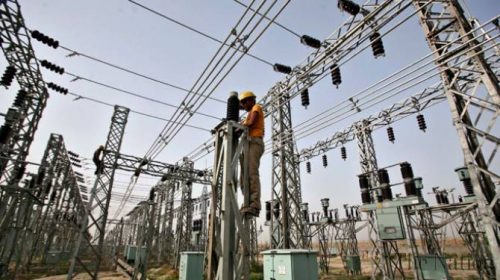FG Gives Oil Firms 2019 Ultimatum To End Gas Flaring

The Federal Government has ordered Exploration and Production (E & P) companies operating in the upstream sub-sector of the nation’s hydro-carbon resources industry to end gas flaring by 2019 or risk stoppage of operations completely.
The Minister of State for Petroleum Resources, Dr Ibe Kachikwu, gave the hint on government’s position during the 2018 Buyers’ Forum/Stakeholders’ Engagement organised by the Gas Aggregation Company of Nigeria Limited in Abuja.
He explained that the Department of Petroleum Resources (DPR) had been mandated to strictly enforce the directive and sanction any defaulting E & P company by preventing it from oil production from next year.
The minister said: “Government wants to end flare; oil companies still give lots of reasons why flare cannot be ended. Bottom line is cash call and money. But the reality is that whether or not we deal with cash call issues, it is not an optional agenda. It is a compulsive immediate agenda. It is destructive to the populace; it is intolerable in developed countries and it should not be tolerable here either.
“Any oil company that cannot find a way to end its flare ought not to be producing. And I have said to the DPR that beginning from next year, we are going to get quite frantic about this. Companies that cannot meet with extended periods, the issue is not how much you pay in terms of fines for flaring; the issue is that you will not produce. We need to begin to look at foreclosing of licences. It is that urgent”, Kachikwu added.
He disclosed further that government would inaugurate the infrastructure revamp programme in November this year, adding that the initiative had the potential of attracting between $20 billion and $30 billion worth of investments into the petroleum industry.
While recalling that the quest to discourage gas flaring necessitated the Federal Government’s gas flare commercialisation programme, Kachikwu explained that future renewal of oil and gas licences would involve the assessment of the gas components and gas flare rate of each company seeking renewal.
According to him, some of the companies that have come recently for renewals have insisted that they are building massive gas processing plants and government is going to follow this right through so that the supply obligation, the processing facility, the treatment of gas and their submissions are very accurate and aggressive.
This is even as harped on the need for the implementation of the domestic supply obligation, which would be extended to domestic supply and processing obligation for both gas and crude oil.
The minister pointed out that the country needed to move away from the point of just producing these commodities, throwing them into the vessel and shipping them out, to the point of processing them locally.
In his remarks at the forum, the Managing Director, GACN, Morgan Okwoche, canvassed the need for increased support for the gas companies by government as well as the imperative for industry operators to collaborate in order to fast-track the development of the gas sub-sector.
Okwoche explained that intra-sector synergy among operators would go a long way in making government to listen to players and adopt appropriate policy frameworks and other regulatory guidelines needed to support investments in the gas sub-sector.






Leave a Reply